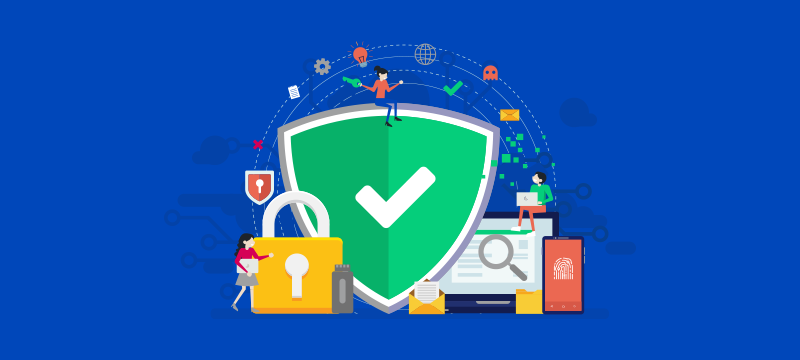In an age where many websites are compromised on a daily basis, it is has never been more important to invest in the security of your site so you don’t end up being one of those affected.
We have put together five of the best ways that you can improve the security of your website, whilst also boosting the level of confidence that your customers have in your business.
- SSL certificate
An SSL Certificate can be a relatively inexpensive way of boosting the security of your website, whilst also deriving other benefits. The amount that you pay for an SSL certificate will depend on the type of certificate that you choose.Instantly generated SSL certificates are generally the most affordable and suitable for a majority of small websites. Where you are accepting orders on your website and handling personal information, it is often better to go for a certificate that can provide you with a greater warranty as these can also offer your customers extra reassurance as greater due diligence is carried out before these certificates are issued.
You should also take note of the browser padlock icon; any valid and signed SSL certificate should prompt this to appear, but it is only the more expensive certificates that will trigger the green address bar, which for many is the ultimate sign of trust in a website. If you are looking to apply an SSL certificate to more than one subdomain then a wildcard SSL may be suitable for your needs; these can provide protection for any number of sub domains under your primary domain.
It August 2014 it was also revealed that Google would begin giving preference in its results to websites that use valid SSL certificates by default, so investing in an SSL certificate could also give your SEO efforts an extra boost!
- Website Scanning
One way in which hackers aim to spread their malware is by compromising third-party websites. If your website were to be compromised then your website may look and act normally, but in the background your visitors could be unwittingly picking up malware that has been planted by malicious attackers. For a relatively small monthly fee, you can choose a tool such as Patchman Website Security that will periodically scan your website for any indication of malware and if anything is detected then you will be notified immediately. If visitors were to discover that your website has been compromised and has been spreading malware then this could result in the loss of their custom and in-turn this could have a drastic impact on your business. So with this in mind, investing in a website scanning tool is recommended for the assurance that not just your visitors, but you are protected as well. - Backup
Whilst not directly boosting the security of your website, ensuring that you perform backups on a regular basis is important so that you have something to fall back on in the event that a malicious attack not only takes down your website, but results in the loss of crucial data. Scheduling backups is a straightforward task for the most part. You’ll need to choose a backup plan that provides enough disk space to host your backups, once that’s done it’s then just a case of entering your backup details into your web hosting control panel and setting how often you would like backups to be taken.Once these steps have been completed, you can leave your backups to run as these processes are completed automatically. It is good practice to check your backups on a regular basis to make sure that they are being taken properly.
- Maintain applications and plugins
Whether you’re using open source or commercial applications on your website, holes are discovered in third-party software all the time and it is important to make sure that you keep any applications that you are using up-to-date so that you can take advantage of any patches as they are released. The same can also be said for third-party plugins that you may have also introduced.The best way to stay in the loop about any potential security holes is to sign up to an application’s mailing list and to keep an eye on any community forums that are available, that way you can be sure that you are informed of any exploitable holes and patch them before your site is compromised.
- PCI compliance
PCI stands for Payment Card Industry and is a set of security standards that have been developed by payment card providers such as Visa, MasterCard, and American Express that govern the level to which online merchants processing payments should secure their servers. As well as providing a safe environment in which credit card details can be held and processed, PCI compliance can also provide your customers with the extra assurance that their data is protected by one of the most stringent security strategies in the industry.Securing a server to PCI standards isn’t a one-step process; rather it a series of actions that need to be taken to patch up various potential security vulnerabilities and can take time and cost money in itself. After this, a test will need to be performed on your server in order to gain official certification and although additional costs are involved, overall they are a worthy and necessary investment for any online retailer.
If you are hosted with us, we also offer solutions to simplify your company’s route to PCI compliance.


